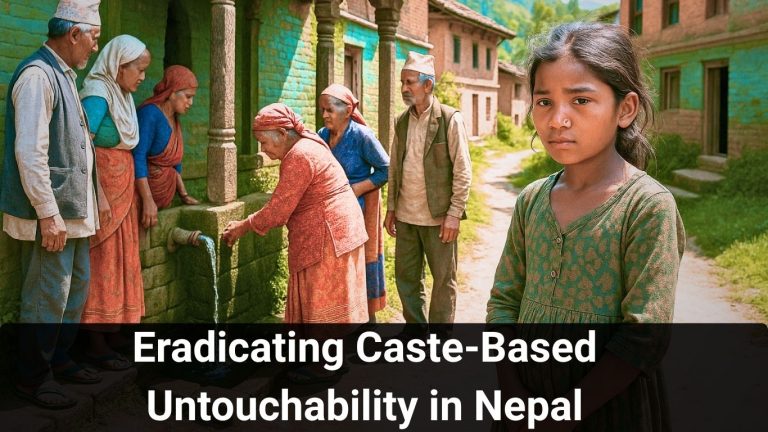Grade 7 English Question New Syllabus
This Compulsory English Question for grade 7 (seven) has been prepared with a new curriculum and a new pattern of questions for Internal and external assessment. Here we have designed the question for grade 7 English as per the specification grid of CDC.
Grade: 7
Subject: English
Time: 1:30 minutes
F.M: 50
1. Read the following passage and answer the following question. 5
The conversation is a fine art. It is the art of exchanging thoughts. It is an art that anybody can cultivate or master. Not everybody can paint or play music, but almost everyone can talk. Thus, it affords the greatest pleasure to the greatest number. “To talk”, says R.LSleversan, “is our chief business in the world. And talk is by far the most accessible of pleasures. It costs nothing in money, it is all profit. It completes our education, makes friends and can be enjoyed at any age.
The conversation is indeed the most teachable of all the arts. All you need to do is to find a subject that interests you and your listeners.
Hobbies are, for example, numberless hobbies to talk about. But the important thing is that you must talk about the other fellow’s hobby rather than your own.
Therein lies the secret of your popularity. There is nothing that pleases people so much as your interest in their interests. It is just as important to know what subjects to avoid and what subjects to select for good conversation. If you don’t want to be set down as a bore, avoid certain unpleasant topics. Avoid talking about yourself unless you are asked to do so. Sickness or death bores everybody. The only one who willingly listens to such talk is the doctor, but he gets sad for it. You must also know not only what to say but also how to say it.
A. Answer the following questions briefly:
(a) How does the author define and explain the art of conversation?
(b) How is talking easier to learn than other fine arts?
(c) What are the subjects one can easily talk about?
(d) Which topics usually bore the listener?
(e) What should be avoided unless you are asked to do so?
2. Read the text and complete the given sentences with the words/phrases from the text. (5)
A few years ago, while I was on holiday in the Himalayas, I stopped for the night in a small village. It was a poor place and there was no proper hotel, but the owner of a restaurant offered me a bed for the night. “Please wait here,” he said, pointing to a table just outside his restaurant, “while I prepare your room.” It was a beautiful evening.
The sun was setting behind the dark mountains and the stars were just beginning to come out. The villagers were lighting fires and the stars were just beginning to come out. The villagers were lighting fires for their evening meals and there was a pleasant smell of wood smoke in the air.
Then I noticed that I was no longer alone. Someone was sitting at the table beside me. It was an old man with a long white beard. His clothes were dirty and almost in rags. “What do you want?” I asked. “Let me tell your fortune, sir”, he said. I laughed. “I don’t believe in that sort of thing,” I told him. All the same, the old man took hold of my hand. “I can tell you your future,” he said. I tried to take my hand away, but the old man held on to it, gently but very firmly.
- There was no good ……………………….in the village.
- He waited at a …………. while the owner was preparing his room.
- The writer liked the …………………of wood smoke.
- The old man was wearing dirty …………… and they were almost in rags.
- The old man wanted to tell the writer’s …………………
3. Read the poem and choose the correct answer. (5)
Two roads diverged in a yellow wood,
And sorry I could not travel both
And be one traveler, long I stood
And looked down one as far as I could
To where it bent in the undergrowth;
Then took the other, as just as fair,
And having perhaps the better claim,
Because it was grassy and wanted wear;
Though as for that the passing there
Had worn them really about the same,
And both that morning equally lay
In leaves no step had trodden black.
Oh, I kept the first for another day!
Yet knowing how way leads on to way,
I doubted if I should ever come back.
I shall be telling this with a sigh
Somewhere ages and ages hence:
Two roads diverged in a wood, and
I took the one less traveled by,
And that has made all the difference.
a.The poet is standing
- in a yellow wood.
- near his house
- in a village
The road bent
- in the overgrowth
- in the undergrowth
- in the underground
b. No step had trodden the leaves black because
- they were yellow.
- it was a beautiful day.
- no one had walked that way.
c. The poet kept
- the two roads for another day.
- the first road for another day.
- none of the roads for another day.
d. Finally, the poet took the road
- less travelled by
- most travelled by
- never travelled by
4. Read the following text and answer the questions according to the instructions given.
Born and raised in Nangi, a remote village in the mountainous district Myagdi district of western Nepal, Pun spent his childhood grazing cattle and sheep and attending a village school without paper, pencils, textbooks or qualified teachers. Traditionally, the local people had no education, and most men joined the British Gurkha army. Pun’s life changed dramatically when his father, a retired Gurkha, took the remarkable step of moving the family to the southern plains of Nepal and investing their entire savings in his son’s education.
After finishing high school, Pun worked as a teacher for about 12 years in four schools, while supporting his brothers’ and sisters’ education. In 1989, after numerous applications to UK and US Universities, he succeeded in gaining a partial scholarship to the University of Nebraska at Kearney, from which he graduated in 1992 with a bachelor’s degree in Science Education. After graduation, he returned to his native village, twenty-four years after having left there as a child. It was in Nangi that he recognized the critical need for sustainable education, and began to formulate his goal of creating a high school to serve as a model for local educational and economic development.
Pun founded the Himanchal High School with a special focus on computer education and other programs with income-generating capacity. He then returned to the University of Nebraska for a master’s degree in Educational Administration, which he completed in 2001. In 2002 the aim of the project is to build a local communications network using wireless technology. The Project helps connect people in remote Himalayan communities with one another as well as the outside world. By 2006, through the Project, Pun was able to establish a Wi-Fi network to connect 13 mountainous villages to the Internet. The Project has now expanded to include over 175 remote villages in 15 districts of Nepal.
A. Answer the following questions. 6
- What profession did Mahabir Pun’s father retire from? Why did he decide to move with his family?
- How many remote villages and districts does the Nepal Wireless Networking project include in 2006?
- What was the name of the school he established and what was the goal of establishing that school?
B. Write true or false to the following statements. (4)
- Mahabir Pun was born in Sri Lanka.
- Mahabir spent his childhood going to school with all the materials that he required in the school.
- Pun worked as a teacher for about 12 years in four different schools.
- He returned to the University of Nebraska for a master’s degree.
5. Read the sentences given below and state their types. 5
- Please, set the table for lunch.
- Have you ever made an omelette?
- The vice president will visit Hyderabad next week.
- You can’t be serious! You must be joking!
- I wish I could go to the Andamans this winter.
6. Develop stories from given outlines with a suitable title. Remember to give the moral of the story at the end. (5)
An old lady becomes blind …………. calls in a doctor ………. agrees to pay large fees if cured …………doctor comes daily………. Starts stealing one piece of furniture daily ………. delays the cure ……… at last cures her ………. demands his fees……… lady refuses to pay, saying cure is not complete……… doctor objects lady says sight not restored as she cannot see all her furniture ……………. moral.
7. Choose the best answer from the multiple options. (10×0.5:5)
- He didn’t get a driving license _________ he is too young. (because, or, from, and)
- There are two things ________ affect temperature. (who, where, when, which)
- It always rains ________ September. (on, at, in, through)
- UAE lies __________ the Arabian Gulf. (at, on, with, in)
- There ________ many rivers in Italy. ( is, are, am, was)
- There isn’t ________ fruit in the Fridge. (some, lot of, are, any)
- Moscow is _________ than any Arab city. (cold, colder, coldest, not cold)
- It ________ rain today. (may, should, must, would)
- If I _________ you, I would participate in a poem competition. (was, were, are, is)
- ________ it helps you in your studies? (Will, was, is are)
8. Write an essay on “Health is Wealth “in about 250 words. (10)
“ALL THE BEST”








